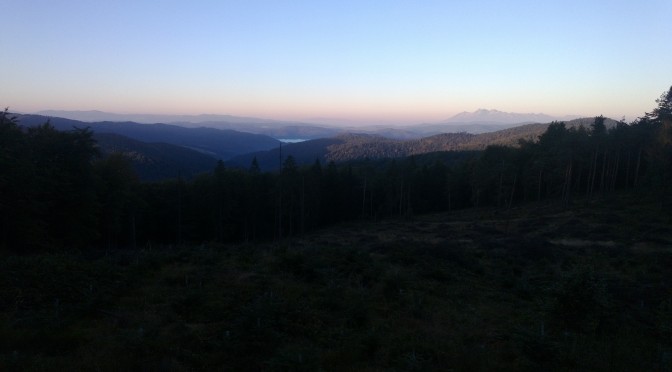Po krótkim odpoczynku po maratonie wracamy do treningu, ale już nie „dokładamy do pieca”, tylko podtrzymujemy wypracowane przez te 6 miesięcy wydolność i siłę. Schodzimy z objętości treningowych tak, by złapać lekkość, ochotę do wysiłku – 5 czerwca musimy być o 20 lat młodsi. Z przyjemnością zmniejszam w grafiku ilość km, które mam przebiec w najbliższych 2 tygodniach, z niepokojem patrzę do wnętrza lodówki, w której, na mojej półeczce, znów pojawiły się głównie buraki i zielenina, zrezygnowany nie patrzę w stronę szafki z winami – kierownik Kasia jest radykalna. Po 10 dniach luzu wracam na dietę i popadam w abstynencję. U Andrzeja jest chyba jeszcze gorzej, gdyż jak się widzieliśmy w sobotę, by powspominać maraton i przy winie odważniej pożeglować po naszych marzeniach, Andrzej pozostał na mieliźnie, przyklejony do dzbana zielonej herbaty.
Miało być o zagrożeniach, więc wracam na tory, ale pominę tak oczywiste sprawy jak nieznana pogoda, braki w przygotowaniu, obtarcia, przewiania i inne, bo je znacie.
Zmęczenie po 40km biegu górskiego jest tak silne, że mały kamyk staje się sporą przeszkodą. Biegniemy po mocno nierównym terenie, do tego na początku nocą, zatem typowe skręcenie nogi, ma szanse się przydarzyć przy każdym ze 170 tysięcy uderzeń stopą. Im dalej tym szanse na taką kontuzje wzrastają a w końcówce, czyli 20km przed metą, bieg po nierównościach przypomina rosyjską ruletkę. Zmęczenie króluje, ruchy są intuicyjne, nieprecyzyjne, po prostu czekasz kiedy nastąpi buum. Upadek wygląda tak, jakby starsza osoba potknęła się o drobny kamyczek i po lekkim zachwianiu nie potrafiła utrzymać równowagi, dalej jak w zwolnionym filmie, ciało powoli i bezwładnie wali się na ziemie – wstać też jest bardzo ciężko.
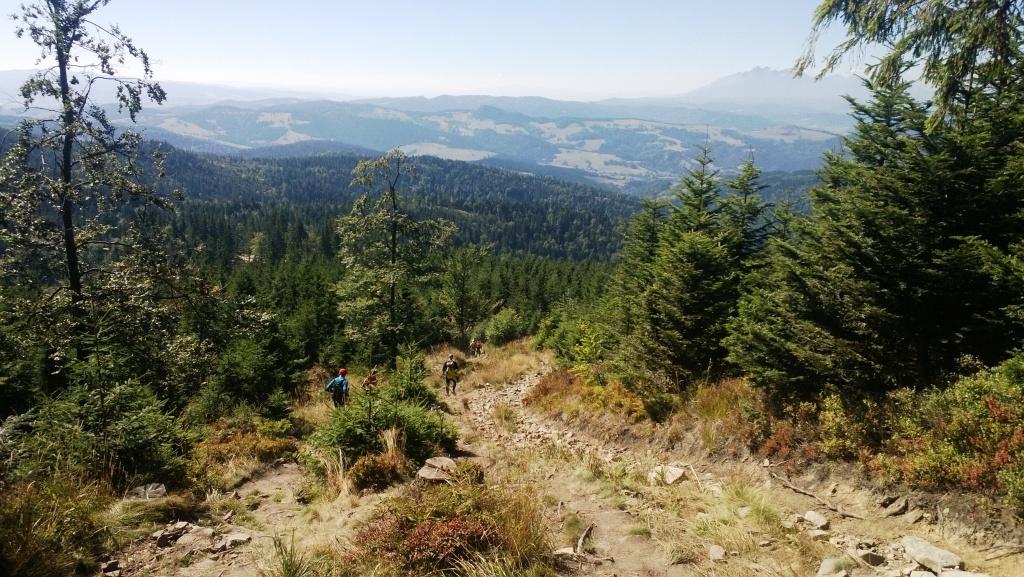
W Krynicy, w Biegu 7 Dolin (B7D – 100KM + 4500m różnicy przewyższeń) startowaliśmy o 3:00 rano, ja z lampą czołową na głowie, która miała kulisty snop światła. Czytałem, że lepsze jest rozproszone, trójkątne światło, ale zignorowałem, uznając, że jakoś to będzie. Po mniej więcej 2 godz. biegu z czołówką zacząłem odczuwać mdłości. Z początku miałem żal do śniadania, ale płatki z bananem plus herbata już dawno i prawidłowo zasilały maszynerię. Zmieniałem odległość świecenia, ale widziałem mniej a przez to ślizgałem się na kamieniach, w końcu, gdy pojawił się brzask (zdjęcie tytułowe), zgasiłem latarkę i trudności minęły. Cóż, w ultra wszystko mierzy się inaczej, drobne potknięcie, zła latarka itp. Zagrożeniem jest ignorancja.
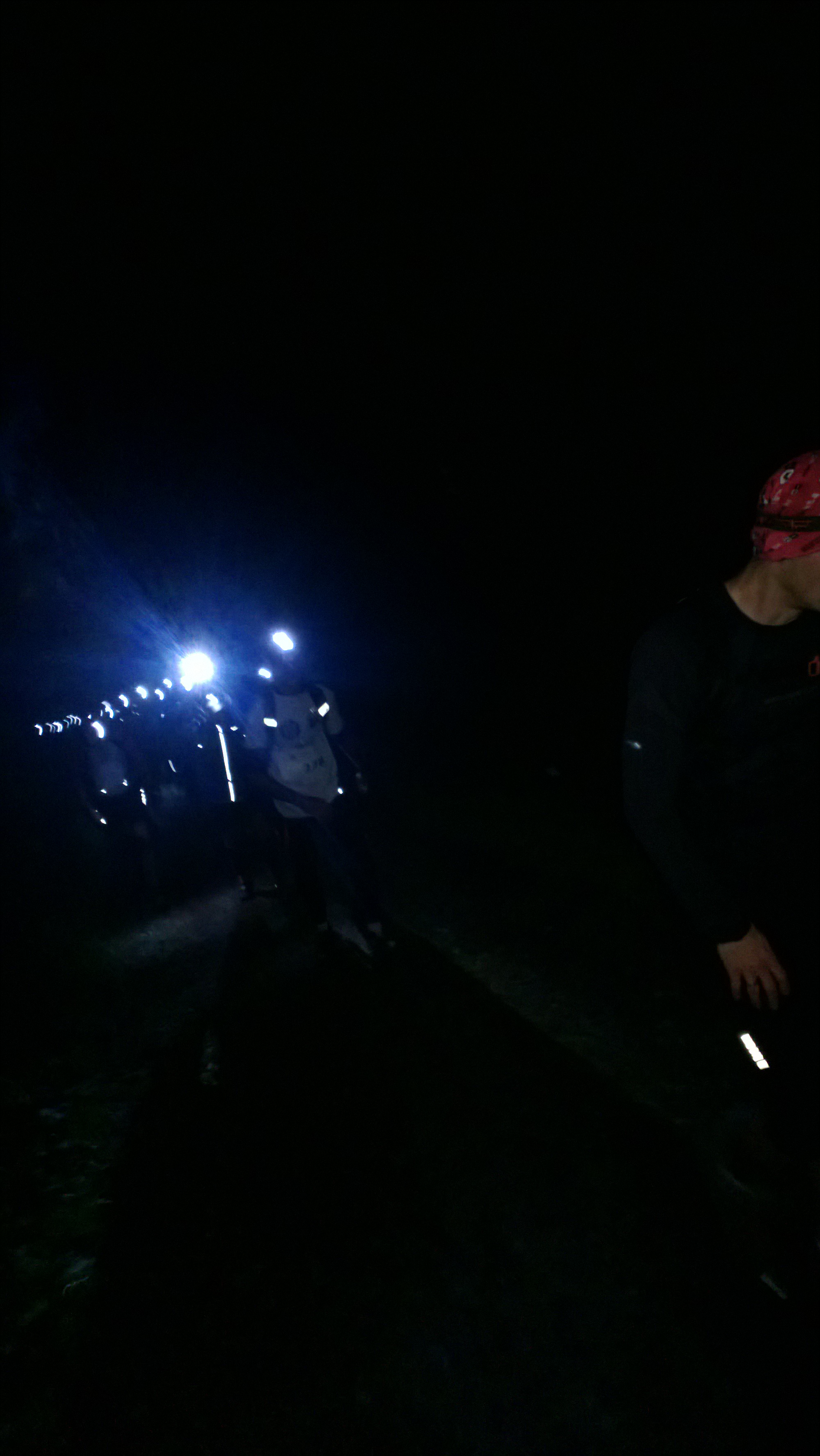
75% naszej energii idzie na chłodzenie organizmu, reszta na motorykę. W Krynicy byłem ubrany prawidłowo i dość szybko pozbyłem się rękawiczek, czapeczki, później wiatrówki, ale widziałem osoby w zimowych czapkach, kolorowych buffach na szyi, kultowych apaszkach, w których darli długo za długo, z mokrym czołem od pierwszych minut. To nie są dobre wynalazki, miłe ciepełko szybko zamienia się w przegrzanie, które bezpardonowo odbiera siły. Najlepsi startują w krótkich ubraniach, co w nocy, przy niskich temperach, wygląda dziwnie. Kiedy zapytałem Zdzicha Wojtyło jak mam się ubrać na rower podczas Ironmana, (ok. 9:30 było jeszcze dość zimno) powiedział w specyficzny dla siebie sposób – na początku będzie chłodno, ale strój krótki i poczekaj – ciepło buchnie z dużych mięśni jak z martenowskiego pieca. Zagrożeniem jest szukanie własnego komfortu.

Podczas zawodów wsparcie zapewniają najczęściej nasi najbliżsi. Przed B7D, pod wpływem literatury, poprosiłem Kasię i Anię (córkę), by nie zadały pytania, czy już mam dość i czy schodzę. Na 66km w Piwnicznej (pomiar czasu, przepak i miejsce spotkania) byłem w tak marnym stanie, że gdyby pojawiła się zachęta, kuszące pytanie wydaje mi się, że bym uległ i zszedł. Poziom zmęczenia, połączonego z odwodnieniem jest tak wysoki, że zaczynamy wyłącznie myśleć o tym, by impreza się zakończyła, nieważne z jakim rezultatem. Zdyscyplinowany team pytania nie zadał a ja podążyłem dalej bijąc się przez kolejne kilometry z myślami „po co?”
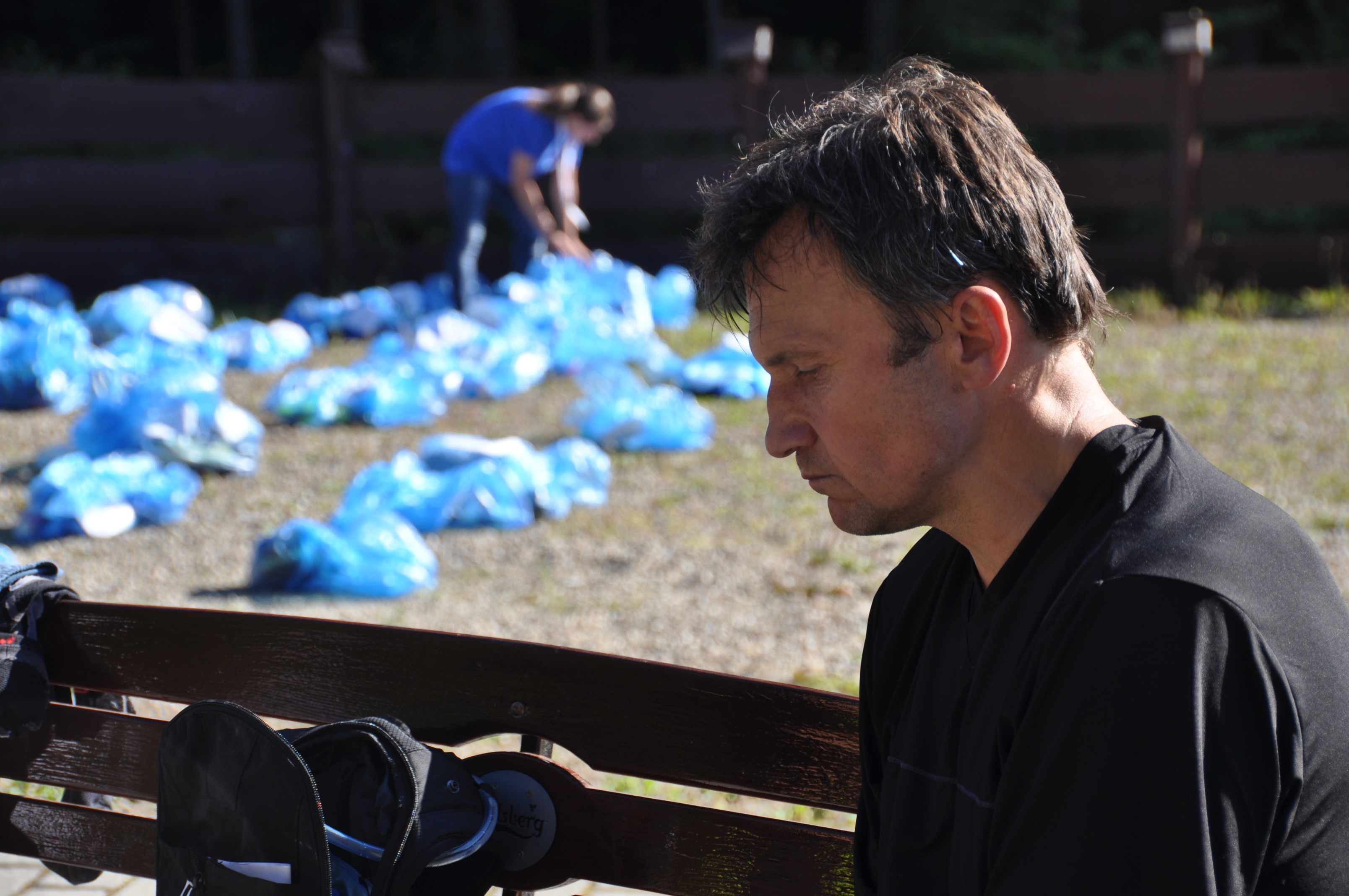
Na 85-tym spotkałem faceta, który stał na ścieżce i przywoływał gestami kogoś, kogo ja w ogóle nie widziałem – któryś z nas musiał mieć halucynacje. Zostawiłem go i zasuwałem dalej radosny, że do końca zostało tylko 15.
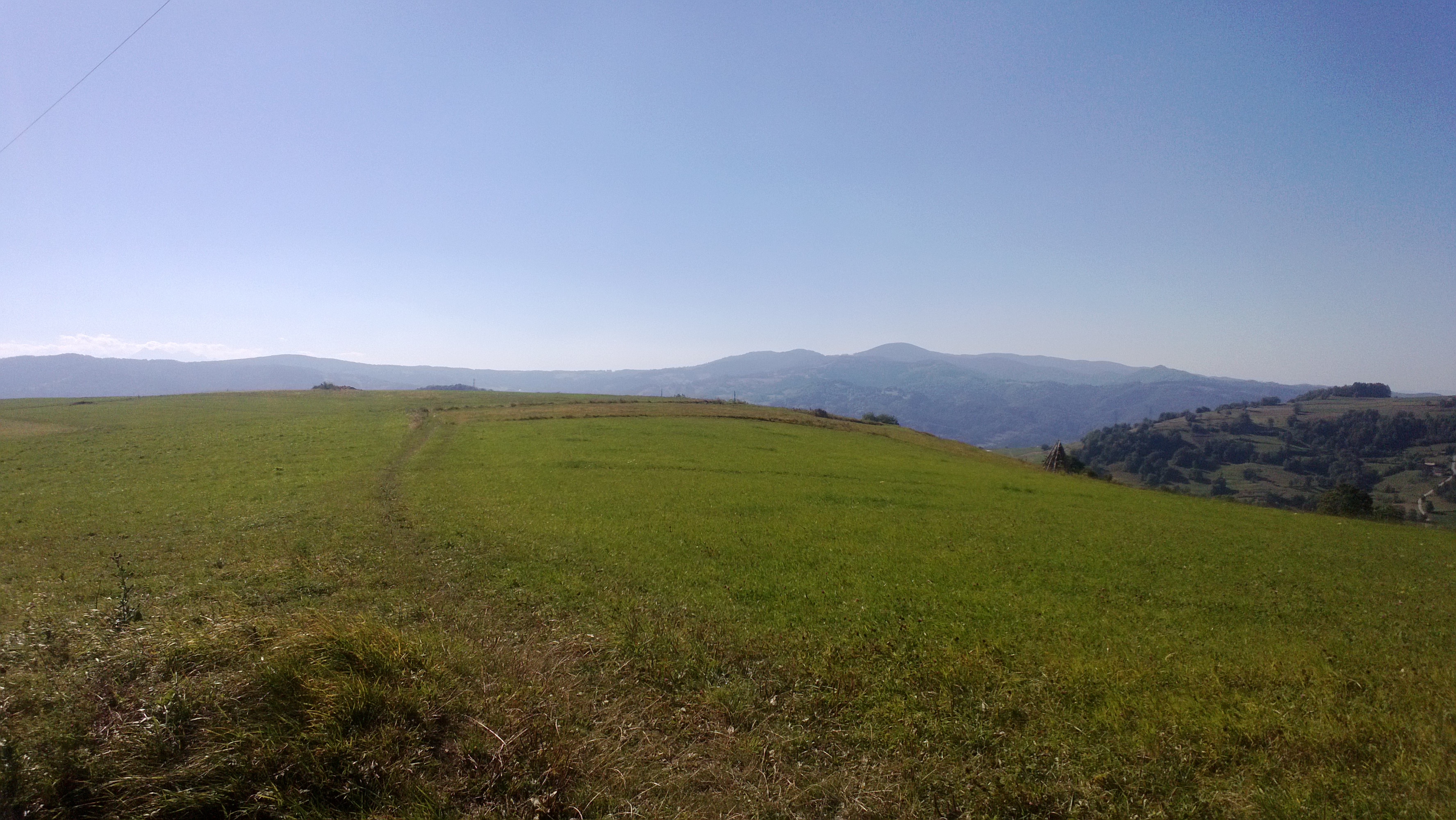
RZEŹNIK ma jeden bardzo trudny element, którym jest bieg w 2osobowych drużynach. Choć jesteśmy różni, to w równym tempie będziemy musieli pokonywać poszczególne etapy, czekając na kryzysy, które pojawią się w kompletnie różnych momentach – nic nie będzie optymalne.
Gdy wejdziemy w strefę zmęczenia przed fazą wyczerpania nasza tolerancja spadnie do zera, będziemy musieli zaakceptować, że jesteśmy inni. Łyk wody za mało, czy za dużo będzie problemem, zmysły wyostrzą się poza znane granice – pomarańcza przyciągnie zapachem z kilku metrów, hałaśliwi kibice i nie daj Boże dzieci z wuwuzelami, poranią stadionowymi dźwiękami. Jedynym celem zacznie być przetrwanie i możliwe skuteczne zakończenie biegu. Nasze ja skurczy się do bardzo wąskiego obszaru, do samej esencji kim i czym jesteśmy, bez tego wszystkiego w co nas przeobraziła cywilizacja –:) tego nie możesz doznać w normalnym życiu.
Ale spokojnie, objawy mijają tuż przed metą … a zagrożeniem mogą być zbyt długo przechowywane wspomnienia.
translation Anna Meysztowicz
After a brief respite following the marathon, we are back in training but we are no longer “adding to the woodpile” and just maintaining our capacity and strength that we have built up over these 6 months. We are scaling down the volume of the training so as to catch some lightness and the will to make the effort – on the 5th of June we need to be 20 years younger. I am happily decreasing the number of kilometres in our schedule that I am to run in the next two weeks, I glance nervously into the refrigerator in which, on my shelf, there are chiefly beets and greens. Resigned I try not to look at the wine cabinet – Director Kasia is radical. After ten days’ relaxation I am back on my diet and abstaining from alcohol. I think it’s even worse for Andrzej, since when we met on Saturday to reminisce about the marathon and surf our dreams more bravely with the help of some wine, Andrzej was glued to his pot of green tea.
This was supposed to be about threats so I need to get back on track, but I will avoid the obvious such as unknown weather conditions, insufficient preparation, sores, wind chill, etc. because you already know them.
The exhaustion following a 40 km mountain run is so extensive that a small stone becomes a large hurdle. We run over very rugged terrain, initially also at night, thus a typical twisting of the foot can occur at any of the 170 thousand steps. The further on, the larger the possibility of such an injury and toward the end, i.e. 20 km before the finishing line, the run over uneven terrain is somewhat reminiscent of Russian roulette. Exhaustion reigns, movements are intuitive, imprecise, you are basically waiting for the big boom. The fall looks like an elderly person tripping up over a pebble and, after slightly losing their balance, being unable to stay upright, then, like a slow motion film, the body slowly and inertly collapses to the ground – it is very difficult to get up too.
In Krynica, in the Bieg 7 Dolin/Run of the 7 Valleys (B7D – 100KM + 4500 m elevations) we started off at 3:00 am, myself with a head lamp featuring a spherical beam of light. I read that it is better to have a scattered, triangular light but ignored that information thinking that this would be ok. After less than 2 h of running with the lamp I began feeling nauseous. In the beginning I felt some anger towards my breakfast, but the cereal, banana and tea had long-since and properly been doing their job of powering my machinery. I kept changing the distance of the light but I couldn’t see as well and, because of this, kept sliding on rocks. Finally, when dawn broke, I turned off the light and my problems disappeared. In the Ultramarathon everything measures up differently, a small stumble, the wrong type of lamp, etc. Ignorance is the threat.
75% of our energy goes to cooling the organism, the rest to our motility. I was dressed appropriately in Krynica and I quite quickly got rid of my gloves, hat and later my jacket, but I could see people in winter hats, coloured buffs around their necks, popular bandanas, in which they tore on for too long with sweaty foreheads within the first half hour. Those are not good inventions, pleasant warmth quickly transforms into overheating, which takes away your strength without any mercy. The best of the best start off in short clothing, which looks very strange at night with low temperatures. When I asked Zdzich Wojtyło how to dress for the bike during the Ironman challenge (it was still quite cold at 9:30 am), he answered in his typical manner – it will be cold at the beginning, but wear a short outfit and wait – the heat will burst out of the large muscles like from a hearth. Looking out for your own comfort is a threat.
During the competition it’s mostly our loved ones who ensure our support. Before the B7D, under the influence of literature, I asked Kasia and Ania (our daughter) not to ask me if I’d had enough and whether I wanted to quit. At the 66th kilometre in Piwniczna (recording of time, repacking and meeting point) I was in such bad condition that if the incentive had appeared, the tempting question, I think I would have given in and given up. The level of exhaustion combined with dehydration is so high that all we can think about is the end of the event without a care for the result. My disciplined team did not ask the question and I ran on fighting through the subsequent kilometres with thoughts along the lines of “why??” running through my head. At the 85th kilometre I met a guy who was standing on the path and gesturing to someone I couldn’t see – one of us was having hallucinations. I left him behind and ran on happy that only 15 km were left till the end.
The RZEŹNIK run itself has one extremely difficult element, which is running in teams of two. Although we are different, we will have to overcome the individual stages of the run together, at an equal pace, waiting for crises that will appear at completely different moments – nothing will be optimal.
When we enter the exhaustion zone preceding the depletion phase, our tolerance will fall to zero and we will have to accept our differences. An excess or insufficient sip of water will be a problem, our senses will sharpen beyond our known boundaries – an orange will lure with its scent from several metres, noisy supporters and, God forbid, children with plastic horns, will hurt us with stadium-like noise. The only goal will become survival and the possible completion of the run. Our I will shrink to very narrow proportions, to the very essence of who and what we are without everything else that civilisation has converted us into – this is something you won’t experience in everyday life. But it’s ok, these symptoms disappear just before the finishing line… and the threat can be hanging onto the memories for too long.
